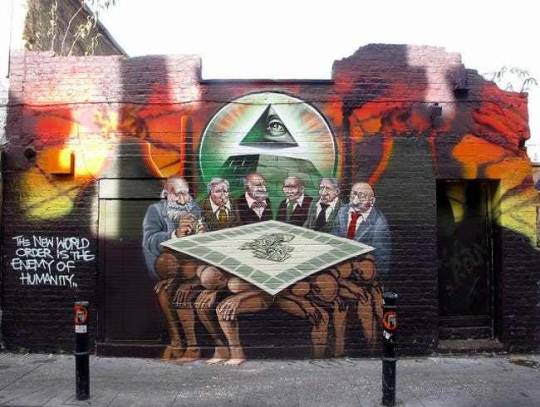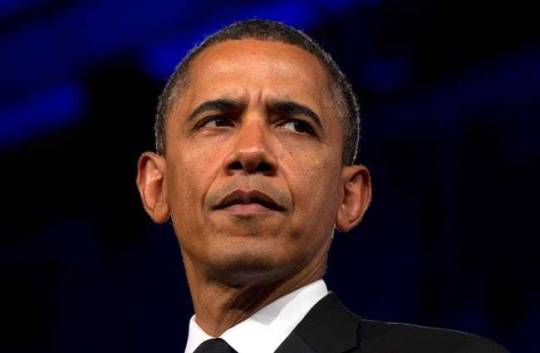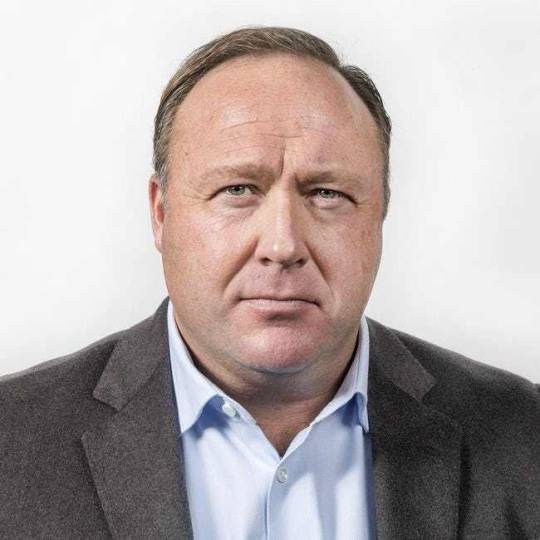#alex is a reformed skeptic
Explore tagged Tumblr posts
Note
Happy Friday! How about some firstprince and 🩵 Turquoise: Magic? 👀
Thank you for the ask @myheartalivewrites!! I am sorry this took so long, but, well... it is a bit long. This "ficlet" clocks in at 1100 words and I cut it down so many times, but alas. It's a fat ficlet. I hope you love it just the same!! 💕
Selena Martinez, in her little shop below a Jewish deli in the East Village, told a somewhat lost Alex that his dream job was in New York City. Not two months after finishing school in D.C. did Alex land the perfect job. And he hadn't even applied; a former professor of his had recommended him to a colleague in the city and they'd called and offered it to him. It was like magic.
Alex never believed in psychics – mediums, tarot cards, crystals, Ouija boards – it was all a bunch of bullshit in his book. But, he'd visited June in New York City two years ago and she'd brought him to a psychic she swore would change his life and fuck if she wasn't right.
So, now two years and two months after moving to New York, Alex is heading back to Psychic Selena, as he affectionately calls her, to ask about his love life. His time on the New York dating scene has confirmed exactly two things: 1) he’s definitely bisexual and 2) dating is exhausting. He intends to ask Selena where and when he might meet the love of his life.
Selena is exactly as he remembers; a thick Spanish accent, long, somewhat untamed hair, and lots of jewelry. She reminds him a bit of his great aunt on his dad's side. And Salma Hayek. She's a true Bruja, June says, and Alex trusts her.
She greets him at the door and gets right down to business.
“I'll need a personal item,” she says, holding out a hand. He had to do this last time, too, so he hands her the key from around his neck again. Last time she had commented how it pulsed strongly with his energy and commended him on his choice. She doesn't dole out the same praise this time and part of him wilts a bit in disappointment.
She steps over to a table against the wall and starts arranging some items.
“You're not going to read my cards again?” He asks nervously.
Last time she had just wrapped his key around her wrist, shuffled some tarot cards, and did a fairly quick reading. Alex had worried about how much June spent on it until it turned out to be worth every penny.
“Soulmate magic is a bit more complicated.”
“Soulmate?” Alex asks. “That's a real thing?”
“Mhm," she nods, spooning loose leaf tea into a small teapot.
“Does everyone have one?”
“No,” she says, peering at him sideways. “But you do.”
Alex’s heart thuds.
“And you can help me find them?”
“If you're meant to. Seeking the unknown is a risk, and if it’s too soon, this won’t work.”
“Oh,” Alex replies dumbly. Knowing he has a fucking soulmate out there is not helping his impatience.
She stirs the tea in careful circles, murmuring in Spanish that's too low for Alex to hear. He waits, trying not to fidget anxiously.
“Drink this,” she says eventually, turning to hand him a cup.
“I'm really more of a coffee guy,” he says, staring into the dark brew, which seems to almost shimmer like she'd dropped edible gold dust in it.
“I must read your tea leaves,” Selena explains with a wave of her hand, sitting down at the table opposite him. She takes out her tarot cards and begins shuffling.
He drinks the tea, which surprisingly tastes pretty good. It's a bit earthy with a hint of something citrusy and almost grassy, like matcha. Alex hated matcha when he tried it once, as a way to curb his coffee addiction, because he thought it tasted like a freshly mown lawn, but this is more of a refreshing flavor. It brings to mind warm summer days at the lake and clear blue waters he wants to swim in.
He downs the tea quickly because Selena has now placed a bunch of cards on the table face down and is eyeing him with thinly veiled impatience. When he hands over his mug, she looks into the bottom of the cup.
“Oh,” she says with some surprise. “This man is already in your life.”
“He is?”
“Mhm.” She puts the mug to the side and places a few more cards down on top of the other ones. She begins flipping them over, humming quietly to herself a bit before speaking. “You have worked with this man. He is likely tall, fair-haired–”
“So it's not Regé-Jean Page?” Alex jokes. Selena levels him with a look, shutting him up immediately.
“I get the sense he is not American,” she continues as she flips more cards. “Perhaps descended from royalty.”
“I’m sorry, did you just say royalty?”
“Mhm,” she responds, not looking at him. “You don’t know him well but he seeks you out.” She taps a card.
Alex looks over the cards and recognizes a few from June’s dabbling – The Lovers, the Ace of Cups, The Sun – but Selena doesn’t explain the meaning behind each one. She points to a few here and there, talks about the symbolism of the suits and the body language of the characters, and Alex tries to keep up. She concludes the reading with a soft smile.
“You have a long and happy future with this person, if you commit to loving them. You are twin flames, made for each other in every way.”
“Wait– you said ‘him’ before and now you’re saying ‘them.’ Is it a woman or a man?”
“All signs indicate this is a male lover, but I can’t be entirely sure, you understand.”
Alex nods, taking back his key when she holds it out to him and looping the chain around his neck. He gets up and heads toward the door, but something stops him. He turns around.
“You said I have a soulmate before you even started the reading.”
“I can sense it in your aura, your soul crying out for its other half.”
It nearly makes him want to cry. Alex has never considered himself incomplete or missing something, but he has always wished for someone who could understand him and be his true match. Like Nora and June. He exits Selena’s shop and steps onto the sidewalk.
“Oh, pardon me,” a voice says, as someone exiting the deli knocks into his right. Alex turns in surprise, his reply dying on his tongue as his eyes land on Henry Fox, someone he met briefly through work about a year before and has seen only in passing since then. Alex takes in the tall, blond, British man with eyes like a clear blue lake and– oh. Oh. He smiles.
#firstprince ficlet#ficlet friday#ficlet prompts#pride flag ficlet#magic#psychics#alex is a reformed skeptic#henry is his soulmate#in every universe#alex x henry#rwrb fanfic#ficlet fail
38 notes
·
View notes
Text
In the winter of January 2020, Democratic Rep. Alexandria Ocasio-Cortez (D-NY), a member of the party’s informal left-wing House bloc dubbed “The Squad,” temporarily backed away from the campaign of Vermont Senator Bernie Sanders in the lead-up to the Iowa caucuses, after enthusiastically supporting him.
Among the reasons she reportedly “grew less interested in helping Sanders’ campaign” was Joe Rogan.
Sanders’ campaign had touted a quasi-endorsement from the wildly popular podcaster, who has a record of inviting controversial guests on to spew conspiracies and bigotry while dabbling in both himself, apparently unnerving Ocasio-Cortez and her team in the process.
Four years later, the Democratic nominee for president, Vice President Kamala Harris, who has Ocasio Cortez’s fervent backing, is in discussions to appear on Rogan’s The Joe Rogan Experience.
It marks a dramatic 180 from the Democratic movement’s response to Sanders merely noting Rogan’s praise four years ago.
Reuters reported Monday that Harris campaign officials were in talks with Rogan’s team about having her on the show, which former president Donald Trump has said he plans to appear on before election day.
The arguments for and against appearing on Rogan remain little changed.
First, there’s the baggage.
Rogan falsely claimed “activists” were behind California wildfires and touted a conspiracy theory associated with climate change denial that claims shifts in the earth’s magnetic poles bring about natural, apocalyptic catastrophes like the flood in the biblical story of Noah’s Ark.
Nearly 300 doctors, physicians and science educators wrote to Rogan's distributor, Spotify, when he spread Covid-19 information, including claiming young people didn’t need to get vaccinated and promoting the taking of veterinary drug ivermectin to treat the disease.
In 2022, he apologized after a compilation of clips of him repeatedly saying the N-word went viral.
Among his past guests are Gavin McInnes, founder of the far-right neo-fascist group Proud Boys, and Alex Jones, the malicious conspiracist who waged a years-long campaign against parents whose children were murdered in the 2012 Sandy Hook massacre.
It could be pointed out that Howard Stern, the reformed shock jock whose show Harris appeared on last week, has a decades long archive of sexist and racist broadcasts. But Stern has backed away from his past antics in recent years—though he’s also paid his way into the Democratic fold, attending top dollar fundraisers.
But, unlike Stern, one need not reach years into the past to find Rogan’s controversies. Earlier this year, his Netflix standup special Burn the Boats was criticized for his mocking trans people and preaching vaccine skepticism—and, arguably more important for a standup special, it was also unfunny, reviewers agreed.
But then there is the case for Rogan, for which the Sanders campaign made a compelling argument for in 2020.
Rogan has a giant audience—tens of millions of subscribers across Spotify, YouTube, Instagram and X. That audience skews heavily male (81%) and young (56% between 18 and 34), demographics relatively immune to legacy media (only 12% of Rogan’s audience says they trust newspapers).
The best way to reach them—agree or disagree with all of their views—is on their turf. If some of them join the Democratic fold and help defeat Donald Trump, great.
Sanders, in fact, had already appeared on Rogan’s show months before the endorsement controversy. In his interview, he took advantage of Rogan’s deferential interview style—part of the reason why right-wing guests on the show frequently make crazed claims without being challenged—to hammer home his message of economic justice directly to the host’s massive audience.
“The goal of our campaign is to build a multi-racial, multi-generational movement that is large enough to defeat Donald Trump and the powerful special interests whose greed and corruption is the root cause of the outrageous inequality in America,” the Sanders campaign told Vanity Fair in 2020. “Sharing a big tent requires including those who do not share every one of our beliefs, while always making clear that we will never compromise our values.”
Sanders was pilloried by Democratic aligned organizations like MoveOn and the Human Rights Campaign. They may yet issue similar reprisals if Harris does ultimately agree to appear on Rogan.
4 notes
·
View notes
Text
well-intentioned & badly-intentioned opposition to drug reform
Opposition to drug reform—such as decriminalization, harm reduction, and safe supply—has many distinct sources. Some opposition stems from skepticism about the empirical evidence that harm reduction or decriminalization works—which in turn stems mostly from sheer ignorance of the extant research, but less often also from reasonable skepticism about the state of the extant research.
But some opposition also stems from hating drug users (or some subsets thereof, such as homeless people with drug addictions), or being apathetic toward their misery or death, or even wanting them to be miserable or die. In the US, people were more open about this a couple of decades ago, but it is still a prevalent motivation even if less often voiced.
Among politicians and policy actors, some opposition stems from failure to learn about or follow the extant research—and some of this is due to systemic ignorance (some of it perhaps merely unfortunate and blameless), and some of it is due to more cynical political-careerist incentives. And some opposition is due to hating or not caring about drug users (or some subsets thereof), or pandering to voters or interest groups who hate or don’t care about them.
Some kinds of intentions are hard to classify as well-intentioned or badly-intentioned. For instance, many people believe that people with drug addictions will actually be benefited by cruelty (“tough love”), and harmed by kindness (“enabling” their addiction), or that they must hit “rock bottom” in order to recover. Many versions of these notions are discredited—for instance, if “rock bottom” notions were true, then homeless people with drug addictions would probably have much higher recovery rates than wealthy & securely housed people with drug addictions. Instead, the reverse is true.
For some critical discussion on the mythology of “tough love,” “enabling,” and “rock bottom,” see Maia Szalavitz’s book Unbroken Brain. Her book, and my post, admittedly haven't refuted every version of these notions, some versions of which are more nuanced and require more nuance rebuttals. (Illegitimate “tough love” also needs to be properly distinguished from slightly similar but legitimate practices, such as setting boundaries e.g. to avoid being harmed or exploited by people with drug problems.) But in any case, my point is these notions may not be neatly classified into well-intentioned or badly-intentioned.
Many people basically have good intentions, but have been misinformed and biased by decades of drug war ideology—and several interconnected forces, such as “tough on crime” ideology, as well as classism, racism, and ableism. Among politicians and other policy actors, some are biased by vested interests in keeping the status quo, which can corrupt the individual or collective reasoning even of basically well-intentioned people.
As one example, I’ve heard from multiple sources that many US drug court judges are open-minded and well-intentioned—yet the scholars Rebecca Tiger (Judging Addicts), Jennifer Murphy (Illness or Deviance?), and Kerwin Kaye (Enforcing Freedom), in their respective books, have all presented powerful evidence that the US drug court system is systematically severely biased against serious reform.
Similarly, the scholar Alex Stevens (Drugs, Crime and Public Health: The Political Economy of Drug Policy) has also analyzed biases in the UK drug policy system, where drug policy scholars are consulted a lot, but their careers are put at risk if they rock the boat too much by e.g. proposing too much reform (to drug policy, or to other related areas such as housing policy).
For a more polemical but highly plausible concise list of biased beneficiaries of the drug war, see Julian Buchanan’s post “Vested Interest is the Driver of Prohibition”: https://julianbuchanan.wordpress.com/2015/04/02/20-benefits-from-the-war-on-drugs/
Opposition to drug reform stems from a massive variety of legitimate and illegitimate sources. The waters are very muddied.
I don’t currently know much about activism, and I don’t have much of a theory of social or policy change. When I provide my analysis and arguments and criticisms regarding drug policy, I have sometimes seen feedback that comes across as saying “These analyses aren't worth making, because the opposition is so biased, unreasonable, or badly-intentioned, that they will never be persuaded.” I’m not sure if this is the intent of the feedback or not, but I find it really dismissive and upsetting.
In general, I don’t mean to present or imply any theory of how to convince opponents, whether well-intentioned or badly-intentioned opponents. But I have numerous intrinsic and instrumental reasons for engaging in this activity of making and posting analyses, which don’t necessarily have much to do with persuading the opposition. If most opponents are impossible to persuade, or are only persuaded by nonrational factors unrelated to my arguments, that’s not relevant to most of what I see myself as doing. Sometime in the future I will try to list and categorize the many reasons I find it worthwhile to critically analyze drug policy even if it won’t likely convince many opponents.
20 notes
·
View notes
Text
Supergirl Enneagram Types
Okay, after months of procrastination research, I finally compiled a list for the enneagram types of the main characters of supergirl (at least most of them).
Before we dive in, I would highly recommend checking out the enneagram institute’s type descriptions if you’re confused as I won’t be giving full descriptions of the types as that would take too long. I will go into the aspects that informed why I typed each character as such.
For a summary though, there are nine types, one through nine. Most people also have a dominant “wing” one of the types either side of them which influences their personality. For instance, a type 9 could be a 9w1 or a 9w8.
Kara Danvers - 2w3
“I can’t let that stop me from helping the people that need my help”
Twos are often known as “the helper”. Kara’s first priority in any situation is helping people, even at the cost of herself. I mean hell, she flew herself (and fort rozz) into space to prevent planet from being mind controlled. Like a type two, when she is in stress she becomes resentful and angry.
Her three wing shows in how she continually strives to improve herself, working hard to prove her worth to others.
Alex Danvers - 6w5
“You got me”
Sixes are known as the loyal skeptic - and are the type most closely related to anxiety. Alex is extremely loyal to the people she loves - a ride or die sort of woman. Like many type sixes, Alex does not like to be unprepared for a situation but will barrel in headfirst for her loved ones and her community.
Her five wing shows in her introversion and when she taps into the “scientific” portion of her brain, seeking out knowledge to make sense of her surroundings.
J’onn J’onzz - 8w9
“I wouldn’t want to live in a world where I need to change the colour of my skin to feel safe, to feel seen, to feel like I’m not a target. I’d rather change the world.”
Type eight is also known as “the protector”. J’onn throughout the series has progressed to a healthy eight - integrating to the positive traits of a type two, becoming a force for justice and protecting the innocent. He demonstrates eight qualities in the battle with anger most type eights have to reckon with, and the fierce protectiveness he has of his found family.
His nine wing shows in his desire for peace, both in his mind and externally.
Lena Luthor - 1w2
“I will not allow you to judge me and my use of science for the betterment of humanity.”
Type ones are also known as “the reformer” or “the perfectionist”. Their basic fear is of being a corrupt or “bad” person at their core, which certainly applies to Lena who is terrified of becoming like her brother. Lena’s obsession with “fixing” people is emblematic of her type, seeing the differences in the world as flaws that can be fixed by her. The fact that she uses her own morals to determine what is “correct” and is incredibly resistant to criticism, rather than collaborating with others , demonstrates the less healthy qualities of a type one.
Lena really wants to help the world, to be loved and needed by others. Her two wing shows in this.
Nia Nal - 4w3
“The greatest gift we can give each other is our authentic selves”
Until reading that quote, I was stumped on what to type Nia as. She has the energy and optimism of a seven, the desire for fairness and justice like a one or an eight, the desire to help like a two and sometimes the people-pleasing nature of a nine. However, Nia is a type four. The basic desire of a four is to find themselves and their significance and their basic fear is to be without an identity. Nia’s identity is the most important thing to her, not only as a trans woman but as a superhero, a friend, a journalist, a daughter a sister. Identity is so fundamental to the beauty of the world to her, that any attack on someone’s identity is met with a blast of dream energy.
Her three wing shows in her engagement with others and her determined nature towards her work and heroics. Nia wants to leave a mark on the world.
Brainiac 5 - 5w4
“I will beat you up... with physics”
Now, I do understand the irony of a character called Braniac *5* being a *type five*, but he does fit the bill. Type fives crave knowledge and understanding of the world above all else, and if you think Brainy isn’t one who wants to know everything... then I guess we’re watching different shows?
James Olsen - 4w3
“When you take a picture of someone, it’s permanent. You’ve captured the truth of them in that moment and that you can keep forever.”
James is a type four with a strong type three wing. He’s proud of his achievements and doesn’t like to stay in one place career wise for too long, seeking opportunities. However, like Nia, his identity is one of the most important things to him. It’s why he became guardian, he wanted to be more than just the *friend* of a superhero. Identity is why he revealed himself to the world, and why he is so vigilant against injustice.
Winn Schott - 3w2
Winn was tough until I started thinking about the basic fear of the enneagram types. A type three’s basic fear is of being worthless. As Winn progresses throughout the series he slowly becomes more of an “achiever”, being proud of his accomplishments and pushing himself to new heights (and new time periods). Winn wants to be known, to be appreciated for the things he can do and to have something he can be proud of himself for.
Mon El - 7w6
Type sevens are perhaps the most extroverted and optimistic type. Mon El too likes to seek out adventure and not be beholden to mundane things in life. He seeks out the things he enjoys and does his best to avoid pain. Less healthy sevens can be incredibly impulsive and scattered, but like we saw with Mon El is season three, when personal growth is achieved they become more focused.
Kelly Olsen - 9w8
Whilst some may categorise Kelly as a type two as she too enjoys helping people, I don’t think that’s correct. Type twos aren’t afraid to be confrontational, whilst a type nine will prefer to keep the boat steady. Kelly is definitely a calming and steady force in the superfriends.
Guesses (not enough info)
William Dey - type two? (I hope by the end of season six we will know enough about him so I can type him).
Maggie Sawyer - type 8?
Cat Grant - likely type 3
Feel free to send through an ask if you disagree or if you think I’ve missed something, or if you have any queries at all!.
#supergirl#enneagram#supergirl ennegram types#kara danvers#alex danvers#j’onn j’onzz#lena luthor#mon el#nia nal#brainiac 5#I accidentally wrote nia nal as nia nap at first but that’s a great name for her#leila’s supergirl warehouse
13 notes
·
View notes
Text
“you’re the only one who saw the good in me.” // headcanon, re. peter burke + self image.
throughout the entire course of the show, neal has been repeatedly told and treated as though he would never be anything more than a criminal. who he is is constantly defined by his crimes. now, neal takes a little pride in that because remember, he views his crimes as art. there’s an elegance to what he does, but that’s for a different post. there’s an uglier side to it though. this affects how people treat him and how he views himself, and whether he’ll make the effort to reform.
let’s review the people in neal’s life. first and foremost, mozzie. he loves mozzie and doesn’t resent him for this but mozzie does repeatedly tell him that who they are won’t ever change. it’s not exactly him putting neal down or telling him he can’t be a better person. it has more to do with; their nature / who they are to their core. “happy endings aren’t for guys like us”. but the moral is: try as we might this is who we are.
diana and jones. rightfully so, they’re wary of neal and neal being who he is, constantly gives them reasons to distrust him. they’re also protective of peter and worried for what neal will do and how it would affect their boss’ reputation and career. they warm up to him, they love him but--- they ultimately also treat him in a way that embeds in neal’s mind that he won’t be more than a criminal in their eyes. does he blame or resent them? no. they’re doing their jobs. as much as it’s in their nature to be skeptical, it’s the same for neal to be scheming.
keller. yeah, i don’t want him in this post but here we are. the constant comparing himself to neal and seeing as they’re technically in the same line of work..... doesn’t help neal to feel good about himself. keller represents the ugliness of the crimes he commits. neal doesn’t believe he’s like his nemesis at all because while they’re both driven by the thrill, he would never be as crude as keller. anyways, he tells him that “people like us hurt everyone around them”, and neal can’t help but agree to an extent. he looks around him and he’s hurt many people. in vastly different ways but it. it leaves a dent in neal’s mind to hear keller tell him these things. again, a mark on the “he’s never going to change” side.
alex hunter. now, i’ll have to rewatch things but alex doesn’t tell neal he’s never going to change i don’t think, but she does manage to lure him out to do things he knows he shouldn’t. you put alex into the equation and... his impulse control is gone. he doesn’t cheat on kate, but even when he’s with kate and he’s actively trying to settle down, give them a normal life, he’s also saying “one last score” and running off with alex. that entire experience and where things ended with kate makes him feel like it may not be possible for him to have a normal life. this is more on neal self-examining himself and his actions.
now, finally, peter burke. yes, peter acknowledges that neal is tricky. literally. and, he often struggles to believe neal’s telling the truth or at least, telling him the complete truth. he doubts neal, constantly checking on him and taking note of how he’s acting, what he’s doing, etc, making neal feel very distrusted. BUT. out of every single person on this list, peter’s the only person who believes neal can change and fights for that change in him every single day. if he didn’t think neal could change, would he be so hurt every time neal made the wrong decision? disappointment is a given reaction. he’s his handler. but, consider the welsh coins incident. the pain in peter’s eyes, even having been suspicious for so long about neal--- does that look like a person who didn’t trust neal to begin with? who didn’t hope that maybe, just maybe, neal’s done the right thing? yeah, he’s worried about his job. but, ultimately, tell me why peter is so angry. neal violated his trust and it hurts to believe that after so many years, neal’s done this instead of coming to him.
more than that, peter treated him more than a criminal, more than a CI, even. he takes him home to have dinner with he and his wife, he listens to his advice outside of work and even in work, respects his advice, agrees wholeheartedly that he should finally have a life outside of the anklet, encourages good relationships--- so many things that make neal feel like he’s more than the label people have smacked on him.
the line; “you’re the only one who ever saw the good in me.” isn’t just to say it. neal had been telling people meaningful goodbyes all day. this was his to peter, and it was the entire heartfelt truth. no one, absolutely no one, made neal feel like he was a good person, or that he could be more than peter burke.
#💎 ╳ there’s nothing sadder than a con man conning himself: muse.#💎 ╳ you’re the only one who could change my mind: re — peter burke.#queue.
2 notes
·
View notes
Photo

JACOBIN MAGAZINE
While the mainstream press has come under increasing scrutiny in recent years, digital media appears to be stuck in a Wild West phase. It seems that Facebook is constantly running into trouble, from reports of data being mined without our consent to moral panics about foreign agents hacking Western democracy and hate crime caused by fake news. Yet as the world’s largest social media platform faces a series of crises, the opportunity has opened up to discuss its regulation.
Labour leader Jeremy Corbyn made a bold move onto this terrain on August 23 in a major intervention in which he announced “a series of radical ideas to build a free and democratic media for the digital age.” In a speech in Edinburgh, he outlined his vision of democratizing both the publicly owned BBC and commercial journalism. He called for taxes on tech giants and internet service providers in order to help level the playing field between the digital monopolists and public-service media.
This call for media reform was a paradigm shift — particularly at a time when the power of firms like Facebook draws rising skepticism. Today privacy violations, the panic over Russian troll farms, and concern over social media’s impact on mental health have all dented public trust in Facebook, and indeed its previously spectacular share price growth. And if in 2010 the film The Social Network cast Zuckerberg as a flawed yet forgivable genius, his recent congressional hearing was met by memes portraying him as a grasping tycoon with a robot smile.
For years governments have seemed scared of challenging the tech giants, refusing either to tax or regulate the new platforms which presented themselves in a near-magical aura. But Corbyn’s speech represents a breakthrough in the public debate on new media. Once apparently the domain of free-spirited libertarians, Silicon Valley is fast becoming a chief concern for states and governments. As social media monopolies are increasingly politicized, other proposals like introducing democratic oversight over the biggest platforms can offer a way to take control over sites that have become public utilities in all but name.
The Internet Ideology
If Britain’s Labour Party and others are finally breaking with the glorification of Silicon Valley’s libertarian ideals, it is also worth asking why this did not happen sooner. Facebook’s promise for dissenting voices has long been its capacity to bypass traditional media. Social media is, seemingly, a gift for whoever wants to challenge the establishment bias of traditional outlets. From the Left’s perspective, it has been credited with an important role in the rise of both Corbyn in the UK and democratic socialists in the US, able to break through the veil of media silence, or attacks. Yet this has, in its own way, also fed the myth that the Internet is a non-hierarchical, decentralized space; an idea which the digital monopolists frequently hide behind.
The mystique of the new tech giants allows them to skirt around the regulation governing traditional press. A founding myth of the Internet depicts a world in which start-ups grow out of dorm rooms and garages to become global platforms, advancing the creativity and connectivity of humanity. The ideological force driving this narrative is the idea that freedom of expression online is sacred — a principle enshrined in US law. But this also means that social media is not regulated like other media. Section 230 of the Communications Decency Act ensures that providers of an “interactive computer service” will not be treated as the publisher of content held by the service. Zuckerberg invoked this very point in July when he eschewed Facebook’s responsibility for controlling posts on the platform that denied the Holocaust.
Nonetheless, recent controversies have suggested that Facebook is anything but “neutral.” In a bid to combat so-called “fake news,” Facebook hasproudly taken a lead from US intelligence agencies in removing “inauthentic” pages, groups, and accounts. Yet in a context where less than a handful of private businesses dominate social media, Facebook can take decisions that shape the world’s biggest public sphere, with zero democratic oversight. Banning a far-right conspiracy theorist like Alex Jones may draw cries of “good riddance.” But banning the Latin American network TeleSUR, pro-Palestinian pages, and pro-Kurdish content gives a new and yet familiar imperialist slant to Facebook’s pronounced humanitarian and democratizing ideals.
At the same time, recent changes to Facebook’s newsfeed — reducing content considered to be passive, rather than interactive, in a bid to sustain use of the platform — has troubled activists who have come to depend on Facebook for publishing alternative views. These changes have underscored the site’s other monopolizing practices, such as forcing mobile users to reach content outside of Facebook via an internal browser; the browser is so slow that users frequently turn back, the better to interact on the platform itself.
A Monopoly Interest
It is, then, increasingly clear that Facebook is far from a neutral space in which users’ timelines are organically shaped by their networked interactions. Facebook is a publisher; it’s just a giant monopolistic one, driven at base by market incentives. As Zeynep Tufekci puts it, at its core, the tech giant’s “business is mundane: They’re ad brokers.” Indeed, as liberals focus the debate on user privacy and data harvesting they obscure the capitalist logics driving these practices, and what the alternatives might look like when data and global connectivity are free from private control.
It is spurious to respond to legitimate criticisms of Facebook by saying we can simply opt out if we don’t like it, or, like the Adam Smith Institute claims, that what Corbyn is saying amounts to a call to waste public money on building a “knockoff” alternative. Precisely Facebook’s biggest strength (also for users) is its critical mass; we use it because “everyone” is there and because we don’t want to — and in some cases, can’t afford to – “miss out.” Facebook functions as a public utility by sharing a mass of information and connecting as many users as possible. Its critical mass makes it a natural monopoly and that alone is bound to undermine users’ freedom of choice. But far from it thereby simply serving a public interest, it is governed by a business model centered on advertising, decisive to everything we see and do on the platform. This incentive drives the addictive logic behind the algorithms which determine whether you see more kitten pratfalls, a meme about Palestine, or a post from an old friend.
Despite Silicon Valley’s humanist pretentions, fundamentally Facebook is about getting as many people using the platform as often as possible. The longer you stay, the more ads Facebook can deliver. The more Facebook can collect data on your interactions, the more targeted, and thus valuable, those ads can be. If an already saturated Western market and the costs of self-regulation (assumed to be better than overbearing, and slow, state enforcement) might affect Facebook’s share price, it remains true that every single active user in the US and Canada was worth $97 to Facebook over the last year, or $23 in Europe. If you didn’t already know, for tech giants like Facebook you are the product — and that’s how much you’re worth.
Just like a traditional publisher, Facebook is clearly shaping what its 2.2 billion active users see. But instead of paying to produce content, Facebook gets it free from its users and other publishers. And instead of real editors, it depends an army of algorithms that are fine-tuned to keep you hooked.
A Socialist Social Media
Facebook falls far short of realizing the Internet’s true potential. Its capacity for global connectivity and the power of big data — which could be used for advancing human progress in infinite ways — is mobilized for one simple purpose: profit.
But what’s the alternative? Well, Corbyn’s proposals centered on redistributing profits from the tech giants and towards public-service media are a bold start. His vision of a British Digital Corporation is wedded to the UK’s paternalist tradition of social democracy, where “independent” journalism is thought to be a public good. But Corbyn’s speech also went a little further than this, suggesting an alternative that “could develop new technology for online decision-making and audience-led commissioning of programs and even a public social media platform with real privacy and public control over the data that is making Facebook and others so rich.”
Like the BBC itself, a social-democratic alternative to Facebook will face challenges. Facebook has enormous political influence and an industrious capacity to avoid tax. Determining what market Facebook operates in and providing a definition of what a digital monopoly actually is, present big legal challenges to taxation. Moreover, when the logic of capitalist competition is applied to media, public alternatives will struggle in an aggressive market for popular attention. Alternatives to Facebook already exist, but none have achieved the critical mass to make them viable. Even if Zuckerberg’s monopoly is broken up, the capitalist incentives driving the media environment could sustain Facebook, or platforms like it, indefinitely by constantly revolutionizing the means of addiction. It seems that without tackling these incentives head-on, the effect could be to create a tiered internet, with a healthier public sphere for some while leaving the most vulnerable to suffer the most pernicious effects of an online obsession.
(Continue Reading)
#politics#the left#jacobin#jacobin magazine#jeremy corbyn#Social media#facebook#mark zuckerberg#monopoly#oligopoly#democratic socialism#socialism
35 notes
·
View notes
Text
Democrats still face tricky path to gutting filibuster despite Manchin's openness to reforms
New Post has been published on https://appradab.com/democrats-still-face-tricky-path-to-gutting-filibuster-despite-manchins-openness-to-reforms/
Democrats still face tricky path to gutting filibuster despite Manchin's openness to reforms
To change the filibuster rules, Democrats will need total unity among their 50 members behind a single plan, but there are still ample disagreements over some major issues: Namely whether to keep the 60-vote requirement needed to break a filibuster.
Sen. Joe Manchin, the West Virginia Democrat who for the first time on Sunday opened the door to weakening the filibuster, still favors keeping the 60-vote requirement, people familiar with his thinking told Appradab, even as a growing number of his colleagues are calling to change the rules so that a simple majority of 51 senators can vote to advance legislation.
The debate has profound implications not just for the traditions of the body but for the direction of President Joe Biden’s agenda and for Presidents to come given that the Senate — unlike the House — has long been where the minority can thwart the will of the majority.
But critics say that the filibuster has been increasingly abused by the minority over the last generation and is in dire need of reform. Manchin, who has long vowed to protect the filibuster, sounded open to one significant shift in the rules: Forcing members to go to the floor and argue if they want to attempt to talk a bill to death, much akin to the popular scenes from the classic film “Mr. Smith Goes to Washington.”
Manchin’s comments have now prompted renewed talk among Senate Democrats to at least change the rules to force senators to go to the floor and mount a “talking filibuster,” a move they hope would at least discourage the tactic since now a simple threat of a filibuster is enough to force a time-consuming set of procedural steps before being forced to clear a 60-vote threshold.
“I think a common refrain that you’ve heard from so many members is: ‘If there’s going to be a filibuster it needs to actually be a filibuster that those who want to obstruct actually should make their case before the American people,'” Sen. Jeff Merkley, an Oregon Democrat and leading advocate to gut the filibuster, said in an interview on Monday. “They should have to spend the time and energy to show up and hold the floor.”
Merkley, who wants to gut the filibuster altogether so that a simple majority of 51 senators is enough to advance legislation, has spent years lobbying his colleagues to adopt changes to the tactic. Now, he says, there’s been an “enormous change” within his caucus in favor of rewriting the filibuster rules.
Under one of Merkley’s proposals, if at least 41 senators vote to block ending debate on a bill or nominee, they would enter a period of extended debate where one or more senators could prevent a final vote for as long as they could physically keep debating the issue on the floor.
But as soon as they didn’t have someone on the floor, the presiding officer would declare the extended debate time to be over and the majority leader could move to a final vote where a simple majority vote would be needed for passage of either a nominee or a bill. Yet changing the rules to 51 votes envisioned under the proposal is something that Manchin is highly unlikely to support.
Discussions within the Senate Democratic Caucus are expected to pick up steam in the coming days to see if they can unify behind a single plan, senators and aides said Monday. In order to change the rules, Democrats need to employ a rarely use tactic called “the nuclear option” — a process where a majority party can change the rules without the consent of the minority.
In 2013, with Barack Obama as President, then-Senate Majority Leader Harry Reid infuriated Republicans when he invoked the so-called nuclear option to allow presidential nominees, other than Supreme Court picks, to be advanced by a simple majority of 51 senators. Later in 2017, then-Senate Majority Leader Mitch McConnell invoked the nuclear option to allow Supreme Court nominees to be advanced by a simple majority, a move that led to the eventual confirmation of then-President Donald Trump’s picks of Neil Gorsuch and Brett Kavanaugh on the high court.
And now, with Democrats seeking to push forward an ambitious agenda that has scant GOP backing, calls are growing from the left about taking that route again to gut the filibuster in order to allow legislation to deal with gun control, immigration, climate change as well as voting and LGBTQ rights.
“If we continue to see obstruction from our Republican colleagues as we saw through this Covid relief package, I think the patience is going to wear thin, even on moderate Democrats,” said California Sen. Alex Padilla, a freshman appointed to fill the seat vacated by Vice President Kamala Harris.
Democrats were only able to advance Biden’s $1.9 trillion relief package since they employed a budget process known as “reconciliation” that cannot be filibustered in the Senate, meaning a simple majority is all that’s needed to pass the bill under that particular procedure. It passed on Saturday by a 50-49 vote.
But they won’t be able to use the reconciliation process on other policy measures that fall outside of the parameters of the budget rules in the Senate, including the $15-an-hour federal minimum wage that was ruled as outside the bounds of the procedure.
Biden skeptical of filibuster changes
Biden, whose legislative agenda has so far garnered no support from Republican lawmakers, continues to resist changes to Senate rules that would diminish the power of the filibuster and its 60-vote requirement.
It’s a stance borne from his 36 years in the Senate, a staunch respect of its traditions and practices and an awareness that Democrats won’t always be in the majority, people close to Biden say. And while it’s not an unmovable view — the White House said Monday it was simply his “preference” to not change the rules — it’s one that puts him at odds with members of his own party.
At immediate issue is a voting rights bill Senate Republicans largely oppose. HR 1, which passed the Democrat-led House last week, would expand voting access and improve accountability and transparency in Washington, its sponsors say. The bill lacks 60 votes in the Senate.
“Voting to me ought to be filibuster-free just like we arranged for the budget to go forward under reconciliation, civil rights laws, and voting rights laws ought to be subject to reconciliation efforts as well,” Rep. Jim Clyburn, a Democrat from South Carolina who is close to Biden, said on Appradab on Sunday.
Yet pressed on whether Biden could support that kind of exemption to the filibuster rules, the White House would not budge.
“That’s not his preference,” White House press secretary Jen Psaki said. “He believes with an issue as important as voting rights, there should be a path forward to work with Democrats and Republicans to get it done, so nothing’s changed on his policy on the filibuster.”
Democrats say there is still an opportunity to change the views of Biden and other skeptics in their party.
“I feel like things change on a dime here,” Rep. Pramila Jayapal, a Democrat from Washington who co-chairs the Congressional Progressive Caucus, told Appradab on Monday. “And when we have several defeats of things that President Biden has promised, and that we must deliver like HR 1 voting rights, I think that that will move him. And we’re keeping up the pressure.”
Yet advocates for changing the filibuster still have a Manchin-sized roadblock ahead of them. And they’ll have to convince others who have been skeptical of changes — including Sens. Angus King of Maine and Kyrsten Sinema of Arizona — to go along as well.
Democrats pushing the rules changes say they’re party shouldn’t be worried about the long-term ramifications.
Merkley said Monday “I do not worry” that a rules change could backfire if Democrats find themselves back in the minority in the next two or four years.
“Democrats in minority would have the same ability to delay things if we’re willing to take to the floor and make our case before the public that the Republicans would have under the talking filibuster,” Merkley said. “If your position is right, if your cause is just, well then you’re going to do fine in the following election at having taken your stand.”
Appradab’s Olanma Mang contributed to this report.
0 notes
Link
As people begin to process the announcement from the U.S. Department of Commerce detailing how it plans, on grounds of national security, to shut down TikTok and WeChat — starting with app downloads and updates for both, plus all of WeChat’s services, on September 20, with TikTok following with a shut down of servers and services on November 12 — the CEO of Instagram and the ACLU are among those that are speaking out against the move.
The CEO of Instagram, Adam Mosseri, wasted little time in taking to Twitter to criticize the announcement. His particular beef is the implication the move will have for US companies — like his — that also have built their businesses around operating across national boundaries.
In essence, if the U.S. starts to ban international companies from operating in the U.S., then it opens the door for other countries to take the same approach with U.S. companies.
A US ban of TikTok would be meaningful step in the direction of a more fragmented nationalized internet, which would be bad for US tech companies which have benefited greatly from the ability to operate across borders.
— Adam Mosseri

(@mosseri) September 18, 2020
If you’re skeptical keep in mind that most of the people who use Instagram are outside the US, as is most of our potential growth. The long term costs of moods countries making aggressive demands and banning us over the next decade outweigh slowing down one competitor today.
— Adam Mosseri

(@mosseri) September 18, 2020
Meanwhile, the ACLU has been outspoken in criticizing the announcement on the grounds of free speech.
“This order violates the First Amendment rights of people in the United States by restricting their ability to communicate and conduct important transactions on the two social media platforms,” said Hina Shamsi, director of the American Civil Liberties Union’s National Security Project, in a statement today.
Shamsi added that ironically, while the U.S. government might be crying foul over national security, blocking app updates poses a security threat in itself.
“The order also harms the privacy and security of millions of existing TikTok and WeChat users in the United States by blocking software updates, which can fix vulnerabilities and make the apps more secure. In implementing President Trump’s abuse of emergency powers, Secretary Ross is undermining our rights and our security. To truly address privacy concerns raised by social media platforms, Congress should enact comprehensive surveillance reform and strong consumer data privacy legislation.”
Vanessa Pappas, who is the acting CEO of TikTok, also stepped in to endorse Mosseri’s words and publicly asked Facebook to join TikTok’s litigation against the U.S. over its moves.
“We agree that this type of ban would be bad for the industry. We invite Facebook and Instagram to publicly join our challenge and support our litigation,” she said in her own tweet responding to Mosseri, while also retweeting the ACLU. (Interesting how Twitter becomes Switzlerland in these stories, huh?) “This is a moment to put aside our competition and focus on core principles like freedom of expression and due process of law.”
The move to shutter these apps has been wrapped in an increasingly complex set of issues, and these two dissenting voices highlight not just some of the conflict between those issues, but the potential consequences and detriment of acting based on one issue over another.
Updated thanks to some discussion in the replies. pic.twitter.com/m1ccO0xYYN
— Alex Stamos (@alexstamos) July 18, 2020
The Trump administration has stated that the main reason it has pinpointed the apps has been to “safeguard the national security of the United States” in the face of nefarious activity out of China, where the owners of WeChat and TikTok, respectively Tencent and ByteDance, are based:
“The Chinese Communist Party (CCP) has demonstrated the means and motives to use these apps to threaten the national security, foreign policy, and the economy of the U.S.,” today statement from the U.S. Department of Commerce noted. “Today’s announced prohibitions, when combined, protect users in the U.S. by eliminating access to these applications and significantly reducing their functionality.”
In reality, it’s hard to know where the truth actually lies.
In the case of the ACLU and Mosseri’s comments, they are highlighting issues of principles but not necessarily precedent.
It’s not as if the US would be the first country to take a nationalist approach to how it permits the operation of apps. Facebook and its stable of apps, as of right now, are unable to operate in China without a VPN (and even with a VPN things can get tricky). And free speech is regularly ignored in a range of countries today.
But the US has always positioned itself as a standard bearer in both of these areas, and so apart from the self-interest that Instagram might have in advocating for more free market policies, it points to wider market and business position that’s being eroded.
The issue, of course, is a little like an onion (a stinking onion, I’d say), with well more than just a couple of layers around it, and with the ramifications bigger than TikTok (with 100 million users in the U.S. and huge in pop culture beyond even that) or WeChat (much smaller in the U.S. but huge elsewhere and valued by those who do use it).
The Trump administration has been carefully selecting issues to tackle to give voters reassurance of Trump’s commitment to “Make America Great Again,” building examples of how it’s helping to promote U.S. interests and demote those that stand in its way. China has been a huge part of that image building, positioned as an adversary in industrial, defence and other arenas. Pinpointing specific apps and how they might pose a security threat by sucking up our data fits neatly into that strategy.
But are they really security threats, or are they just doing the same kind of nefarious data ingesting that every social app does in order to work? Will the US banning them really mean that other countries, up to now more in favor of a free market, will fall in line and take a similar approach? Will people really stop being able to express themselves?
Those are the questions that Trump has forced into the balance with his actions, and even if they were not issues before, they have very much become so now.
from Social – TechCrunch https://ift.tt/2EekO59 Original Content From: https://techcrunch.com
0 notes
Text
Instagram CEO, ACLU slam TikTok and WeChat app bans for putting US freedoms into the balance
As people begin to process the announcement from the U.S. Department of Commerce detailing how it plans, on grounds of national security, to shut down TikTok and WeChat — starting with app downloads and updates for both, plus all of WeChat’s services, on September 20, with TikTok following with a shut down of servers and services on November 12 — the CEO of Instagram and the ACLU are among those that are speaking out against the move.
The CEO of Instagram, Adam Mosseri, wasted little time in taking to Twitter to criticize the announcement. His particular beef is the implication the move will have for US companies — like his — that also have built their businesses around operating across national boundaries.
In essence, if the U.S. starts to ban international companies from operating in the U.S., then it opens the door for other countries to take the same approach with U.S. companies.
A US ban of TikTok would be meaningful step in the direction of a more fragmented nationalized internet, which would be bad for US tech companies which have benefited greatly from the ability to operate across borders.
— Adam Mosseri (@mosseri) September 18, 2020
If you’re skeptical keep in mind that most of the people who use Instagram are outside the US, as is most of our potential growth. The long term costs of moods countries making aggressive demands and banning us over the next decade outweigh slowing down one competitor today.
— Adam Mosseri (@mosseri) September 18, 2020
Meanwhile, the ACLU has been outspoken in criticizing the announcement on the grounds of free speech.
“This order violates the First Amendment rights of people in the United States by restricting their ability to communicate and conduct important transactions on the two social media platforms,” said Hina Shamsi, director of the American Civil Liberties Union’s National Security Project, in a statement today.
Shamsi added that ironically, while the U.S. government might be crying foul over national security, blocking app updates poses a security threat in itself.
“The order also harms the privacy and security of millions of existing TikTok and WeChat users in the United States by blocking software updates, which can fix vulnerabilities and make the apps more secure. In implementing President Trump’s abuse of emergency powers, Secretary Ross is undermining our rights and our security. To truly address privacy concerns raised by social media platforms, Congress should enact comprehensive surveillance reform and strong consumer data privacy legislation.”
Vanessa Pappas, who is the acting CEO of TikTok, also stepped in to endorse Mosseri’s words and publicly asked Facebook to join TikTok’s litigation against the U.S. over its moves.
“We agree that this type of ban would be bad for the industry. We invite Facebook and Instagram to publicly join our challenge and support our litigation,” she said in her own tweet responding to Mosseri, while also retweeting the ACLU. (Interesting how Twitter becomes Switzlerland in these stories, huh?) “This is a moment to put aside our competition and focus on core principles like freedom of expression and due process of law.”
The move to shutter these apps has been wrapped in an increasingly complex set of issues, and these two dissenting voices highlight not just some of the conflict between those issues, but the potential consequences and detriment of acting based on one issue over another.
Updated thanks to some discussion in the replies. pic.twitter.com/m1ccO0xYYN
— Alex Stamos (@alexstamos) July 18, 2020
The Trump administration has stated that the main reason it has pinpointed the apps has been to “safeguard the national security of the United States” in the face of nefarious activity out of China, where the owners of WeChat and TikTok, respectively Tencent and ByteDance, are based:
“The Chinese Communist Party (CCP) has demonstrated the means and motives to use these apps to threaten the national security, foreign policy, and the economy of the U.S.,” today statement from the U.S. Department of Commerce noted. “Today’s announced prohibitions, when combined, protect users in the U.S. by eliminating access to these applications and significantly reducing their functionality.”
In reality, it’s hard to know where the truth actually lies.
In the case of the ACLU and Mosseri’s comments, they are highlighting issues of principles but not necessarily precedent.
It’s not as if the US would be the first country to take a nationalist approach to how it permits the operation of apps. Facebook and its stable of apps, as of right now, are unable to operate in China without a VPN (and even with a VPN things can get tricky). And free speech is regularly ignored in a range of countries today.
But the US has always positioned itself as a standard bearer in both of these areas, and so apart from the self-interest that Instagram might have in advocating for more free market policies, it points to wider market and business position that’s being eroded.
The issue, of course, is a little like an onion (a stinking onion, I’d say), with well more than just a couple of layers around it, and with the ramifications bigger than TikTok (with 100 million users in the U.S. and huge in pop culture beyond even that) or WeChat (much smaller in the U.S. but huge elsewhere and valued by those who do use it).
The Trump administration has been carefully selecting issues to tackle to give voters reassurance of Trump’s commitment to “Make America Great Again,” building examples of how it’s helping to promote U.S. interests and demote those that stand in its way. China has been a huge part of that image building, positioned as an adversary in industrial, defence and other arenas. Pinpointing specific apps and how they might pose a security threat by sucking up our data fits neatly into that strategy.
But are they really security threats, or are they just doing the same kind of nefarious data ingesting that every social app does in order to work? Will the US banning them really mean that other countries, up to now more in favor of a free market, will fall in line and take a similar approach? Will people really stop being able to express themselves?
Those are the questions that Trump has forced into the balance with his actions, and even if they were not issues before, they have very much become so now.
0 notes
Text
Trump Signs Executive Orders to Lower Prescription Drug Prices
U.S. President Donald Trump on Friday signed four executive orders aimed at lowering the prices Americans pay for prescription drugs, as he faces an uphill reelection battle and criticism over his handling of the coronavirus pandemic.
Trump has previously proposed most of the changes made by the executive orders he signed Friday, but this was the first time they had made it into signed executive orders.
One order would allow for the legal importation of cheaper prescription drugs from countries like Canada, while another would require discounts from drug companies now captured by middlemen to be passed on to patients, Trump said.
Another measure seeks to lower insulin costs, while a fourth, which may not be implemented if talks with drug companies are successful, would require Medicare to purchase drugs at the same price that other countries pay, Trump said.
Executives of top drug companies have requested a meeting to discuss how they can lower drug prices, the president said.
"We will see what those discussions indicate, but the agency is prepared to move forward," said Medicare chief Seema Verma.
Pharmaceutical industry weighs in
The orders received swift pushback from the pharmaceutical industry. The move was "a reckless distraction that impedes our ability to respond to the current pandemic – and those we could face in the future," the Pharmaceutical Research and Manufacturers of America said in a statement.
Wall Street analysts were skeptical that the orders would have much effect on drugmakers and said they could prove difficult to implement in practice.
"We believe they are likely geared more towards deriving campaign talking points rather than producing tangible, material effects," Brian Abrahams, a biotech analyst at RBC Capital Markets, said in a note.
Shares of several drugmakers ticked up as Trump outlined the plan, recovering some of the day's losses.
Congress not on board
Trump repeatedly has called for lowering the cost of prescription drugs, but Congress has not yet passed a major drug price reform.
Many of the administration's past efforts to cut drug prices, including its plan to force insurers and other health care payers to pass rebates on to patients, have stalled amid industry pushback.
"Reviving a rebate reform proposal now does not address the underlying flaws – that it will drastically increase Medicare premiums for America’s seniors and most vulnerable," the Pharmaceutical Care Management Association, whose members negotiate rebates for health care payers with drugmakers, said in a statement.
Paying the rebates directly to seniors in the form of discounts could cut their drug costs by as much as $30 billion, or as much as 30%, U.S. Health and Human Services Secretary Alex Azar said in a Friday press call.
Trump is under fire for surging coronavirus cases in the United States and beset by decreasing poll numbers ahead of November 3 elections. On Friday, he also said that the White House would propose a health care bill soon but offered few details.
Drugmakers often negotiate rebates or discounts on their list prices in exchange for favorable treatment from insurers. As a result, insurers and covered patients rarely pay the full list price of a drug.
from Blogger https://ift.tt/2OWufHY via IFTTT
0 notes
Text
Congress tax conference to tackle individual mandate, corporate tax cut

Senate Majority Leader Mitch McConnell, R-Ky., left, and Speaker of the House Paul Ryan, R-Wis. (Photo By Tom Williams/CQ Roll Call)
WASHINGTON — A group of bipartisan lawmakers appointed to the Senate and House conference committee on tax reform will have a host of issues to iron out when they have their first meeting early next week — from calls to raise the corporate tax rate to delivering on a healthcare deal to win over a key swing vote in the Senate.
President Trump recently called the conference committee a “mixer” in which lawmakers will combine the House and Senate tax reform bills and come out with something that’s “perfecto.” He expects that bill to land on his desk before Christmas.
The mixing is likely to be a messy process, however, as many differences remain between both pieces of legislation and House and Senate Republicans face distinct political pressures.
Some House conservatives are bristling at a deal made between Senate Majority Leader Mitch McConnell, R-Ky., and Sen. Susan Collins, R-Maine, that both the House and Senate would pass two bills to shore up Obamacare’s individual markets in order for her to back tax reform. One of the bills restores billions of dollars in subsidies to insurance companies that lower premiums for lower-income customers while the other allows states to form high-risk pools for sicker customers.
Collins made the deal because the Senate bill repeals Obamacare’s individual mandate, and she believes these two stabilizing bills are needed to help offset negative effects on customers’ premiums from that repeal. (The Congressional Budget Office estimates that premiums would rise if the individual mandate is repealed.)
Collins, a moderate who voted for the Senate’s bill last week but against the GOP’s Obamacare-repeal plans, said she believes her agreement with McConnell covers the House, as well. “The negotiations are going well and that I remain confident despite your skepticism,” Collins told reporters Thursday.

Sen. Susan Collins, R-Maine, center, walks with Sen. Jeff Flake, R-Ariz., left, and Sen. Luther Strange R-Ala., right, on Capitol Hill in Washington. (AP Photo/Susan Walsh)
House Speaker Paul Ryan sounded positive about this deal in a press conference, though he said he was not involved in the discussions. “She’s put some very productive solutions on the table,” Ryan said of Collins. “Our members are looking at the same kind of solutions.”
But not everyone is on board yet.
“I am not bound by some deal that a few senators make,” Rep. Jeff Fortenberry, R-Neb., told Yahoo News. “I don’t work for the United States Senate — nobody else does around here, either.”
“Our members wince at voting to sustain a system that none of them supported,” Rep. Tom Cole, R-Okla., told the New York Times.
Meanwhile, lawmakers will also have to address complaints over the bills’ treatment of state and local income and property taxes. The House and Senate bills allow taxpayers to deduct $10,000 in state and local property taxes, eliminating income tax deductions and deductions for more expensive properties. House members on both sides of the aisle from high tax states such as New Jersey and California have complained that eliminating these deductions will raise taxes on their constituents. Critics have argued that the bill intentionally distributes some of its pain to Democratic states, which tend to have higher local taxes.
McConnell told conservative radio host Hugh Hewitt on Wednesday he was open to changing the bill so that the $10,000 could be used for deducting either property taxes or income taxes, opening up the reduced deduction to more people. “That sounds like a kind of reasonable idea,” McConnell said.

President Trump in the Oval Office on Thursday. (AP Photo/Alex Brandon)
Meanwhile, the president opened the door to giving corporations a slightly less generous tax rate of 22 percent instead of the 20 percent currently in the legislation. (The current tax code levies a 35 percent rate on businesses.)
Some Republican senators have jumped on this idea, hoping the that extra revenue could fund a more generous child tax credit or be used to repeal another tax on corporations, the alternative minimum tax.
But resistance remains.
“I’m likely to advocate on keeping it where it is,” said Sen. Tim Scott, R-S.C., a member of the conference committee.
#_author:Liz Goodwin#_uuid:ed3da149-9ead-32cd-891e-a4f0e65a9eee#_revsp:Yahoo! News#_lmsid:a077000000CFoGyAAL
2 notes
·
View notes
Text
ToS: IV
IV.
House of Politiques: A New War, An Old Flame
“The people want to attack, they are ready to take action.”
Around the oval table of the Conduct Room sat Alexander Hamilton, Bran Stark, and Emmanuel Macron, executive heads of the House of Politiques. Stark, the closest to the people of the district, explained to the two other men the willingness of the constituency. The House of Politiques had a strong, if not extreme, following.
“Do the people understand what may come if they are to truly fight?” said Hamilton. “We’ve yet to truly enter the war.”
“Il a raison,” interjected Macron, agreeing with the diplomat. “Les gens ne connaissent pas la terreur.”
“I understand why you are skeptical, but the people have spoken and will not be diffused. They want to attack at first light. The death of Cato and Halloran has put them into a frenzy,” Stark urged.
Hamilton and Macron exchanged a look, a look almost unreadable to the third party. Hamilton reached forward and picked up his quill, dipping it into the ink before he took it the parchment in front of him, beginning to write out the House’s plan of attack. The state was weak in their artillery and manpower, and had very little training in the art of war, but with the fire burning so bright within them there was no chance in putting it out now.
“We don’t have the militia or the supplies to travel so far in this cold and still stand a chance against any of the Houses,” said Alexander, looking up at his confidants.
After a moment of thought, Bran spoke.
“What if we join forces with the House of Jolisyeux?”
“Seraient-ils conformes?” asked Macron, leaning back in his seat.
“Yes,” Hamilton replied, “The last word we received, they had taken a major hit to their remaining militia. They need assistance as much as we do. At the very least, they know how to put up a fight.”
“La distance,” stated Macron.
“The distance is an issue, yes,” Bran said, “but if we can form some sort of alliance with Pitre-”
“Jamais.”
“No, not never,” Alexander repeated, looking between the two men. “We have an ally in that house, one I do not take lightly calling upon, but an ally none the less. What is your plan, Stark?”
“We form an alliance with Pitre, if they allow us to cross through their kingdom, we are at the gates of Jolisyeux in less than half of the time the original route would take. We can afford to send a militia of ten out, including one of us, is this correct Hamilton?”
“Correct.”
“Then can we agree to this?”
The question hung in the air for a few moments, before Macron broke the silence.
“Je suis d’accord,” he said, and the other two followed suit. “Qui est notre allie, Hamilton?”
Hamilton sighed, a mixture of uncertainty and fear crossing over his face as he spoke, saying:
“Her name is Sophia.”
*****************
“I didn’t think it would take you so long to call on me, Alex,” said Sophia as she took a seat at the table. Three days had passed in calling for the woman, and she had arrived not even a few minutes before they retired to the Chamber. The three men sat across from her, Hamilton shifting uncomfortably in his chair, pushing back his brown locks of hair.
“I did not intend to call on you at all, Sophia. But we have a problem, and I’d like… I’d like to reconcile so that we can ask for your aid,” Hamilton replied, his discomfort obvious in his demeanor. Sophia noticed, and a smirk took to her lips at the thought.
“Come on now, Alexander, we didn’t leave off on that bad of a foot, did we?” She said, leaning forward as she rested her arms on the table. “Nothing between us was too...scandalous, wouldn’t you agree?”
“I cheated on my wife with you, Sophia. I would call that scandalous.”
“Pouvons-nous parler de nos problèmes maintenant?” Macron stepped into the conversation, drawing Hamilton back to the situation at hand. Hamilton swallowed, hard, then stood up from his seat before walking swiftly out of the room. Unphased, Bran continued the conversation.
“Miss, we have called you here today because we would like to form an alliance,” he said. Sophia laughed, leaning back casually in her seat.
“My men will never form an alliance with you,” she stated, folding her arms over her chest. “If that’s all, then I am going to le-”
Bran cut her off. “No, we do not want an alliance with them,” he said, “we want one with you.”
Sophia raised an eyebrow, curiously, sitting up straight once again at attention. “What kind of alliance?”
“We simply want your word that you will help us pass through your kingdom, unharmed, so that we may make it quickly to the House of Jolisyeux. We have business to conduct but do not have the time to spare,” said Bran.
Sophia gave a sweet smile before asking, “And what will I benefit from this alliance? I won’t just help you, you know. I want something in return.”
Bran nodded quickly. “Yes, that is understood, what can we give you? Money? Status? We can give you essentially anything that meets the same severity of our offer.”
“I want Hamilton.”
The room fell silent, the two leaders looking between each other then back at Sophia, somewhat in shock. Sophia sat undisturbed, awaiting a response.
“I’m sorry, miss, we cannot just give you Ham-”
“I want to speak with him, to reform what was once beautiful. As long as he agrees to speak with me, I will follow through with the terms of this alliance. He must agree now, he cannot wait,” she said.
The door to the chamber closed softly enough to be heard by the three at the table, catching their attention. Hamilton stood tall, staring down the woman who had wrecked his marriage, but made one night turn into the fantasy he carried around the in the forefront of his mind day and night. With a deep breath, he said, “If we must talk, we must talk Sophia. Tell my men how to get through your kingdom, and keep them safe, and I will talk.”
Sophia smiled, nodding her head.
“I will do just that.”
Macron and Bran thanked their ally before standing from the table, leaving to gather troops and supplies. Hamilton remained at the door, and Sophia at the table, eyes locked in a quiet war with one another, before Hamilton slipped outside of the door as quietly as he came in.
1 note
·
View note
Text
Things You Should Know About The Illuminati
var h12precont = 'h12c_300x250_' + Math.floor(Math.random()*1000000); document.write('
'); (h12_adarray = window.h12_adarray || []).push({"adcontainer":h12precont,"placement":"c9d6b99f00114c5a436a0f497c7bb182","size":"300x250","type":"standard","width":"300","height":"250","name":""});
The Illuminati are regarded as a cabal of probably the most {powerful} politicians, bankers, entertainers, and businesspeople on the earth. They’ve their hand in nearly each occasion that’s occurred in human historical past over the previous 2 hundred years, from the French Revolution to the tragedy at Sandy Hook Elementary Faculty. And regardless of their secrecy, they flaunt their energy and wealth in public utilizing Occult imagery and hand indicators. However what do we actually know concerning the Illuminati?
What’s the Illuminati? Who’re Illuminati members, and what are the Illuminati’s secrets and techniques? Is it an actual group, or an advanced conspiracy principle that adjustments relying on who’s espousing it? And what’s its actual historical past?
It may be onerous to outline Illuminati, however listed below are 20 info concerning the Illuminati, each the historic Illuminati secret society and the popular culture Illuminati conspiracy, that you simply won’t learn about. However watch out what you do with this information. Illuminati trivia shouldn’t be for the faint of coronary heart. Those that cross the cabal have been recognized to have unhealthy issues mysteriously occur to them…
Adam Weishaupt

The historic Illuminati and the one related to quite a few conspiracy theories are separate, and there’s no compelling proof they’ve something to do with one another.
The historic Illuminati motion was based by Adam Weishaupt on Could 1, 1776 in Ingolstadt, Higher Bavaria, because the Order of the Illuminati.
The Enlightenment

The Illuminati group initially got here collectively to espouse Enlightenment beliefs and struggle superstition. Aspects of this included opposition to each the Bavarian monarchy and what they noticed because the undue affect of the Catholic Church on philosophy and the sciences.
Freemasonry

The Illuminati modeled its rituals and vows of secrecy after these practiced in Freemasonry, as lots of its members have been additionally high-level Masons. At its top, the Illuminati had about 2,000 members within the numerous kingdoms that might in the future comprise Germany.
The motion’s professed purpose was “to achieve the best doable diploma of morality and advantage, and to put the inspiration for the reformation of the world by the affiliation of fine males to oppose the progress of ethical evil.” Weishaupt and his comrades additionally advocated for the abolition of prejudice and the training of ladies, who they believed must be handled as mental equals.
Charles Theodore, Elector of Bavaria

In 1777, the brand new ruler of Bavaria, Karl Theodore, banned all secret societies, together with the Illuminati. The group lasted one other eight years skirting the regulation, till lastly collapsing below the stress of a number of authorities edicts. Weishaupt was banished from Bavaria, and the group members went their separate methods.
Proofs of a Conspiracy

Two books written within the late 1700s first posited the concept the Illuminati have been a component of a serious conspiracy in opposition to the non secular and governmental establishments of Europe. They have been Memoirs Illustrating the Historical past of Jacobinism, written by Augustin Barruel and Proofs of a Conspiracy, by John Robison.
These authors noticed the Illuminati as a sinister power devoted to destroying the Catholic Church and the pure order of society.
French Revolutionary Wars

The crux of those books was that not solely had the Illuminati survived, however they have been far more {powerful} than anybody knew. Most shockingly, the Illuminati had masterminded the French Revolution with the intention to overthrow the monarchy of France and introduce Enlightenment beliefs to the downtrodden folks.
Revolutions of 1848

Barruel and Robison’s writings grew to become extraordinarily well-liked among the many higher courses and Catholic populations of each Europe and the U.S., spawning many copycat books and conspiracy theories. Worry of Illuminati plots to overthrow the assorted monarchies of Europe grew to become extraordinarily well-liked within the 1800s.
In 1848, a sequence of employee revolts round Europe have been brutally oppressed, partly due to the fears stoked by Illuminati conspiracy theories.
John Birch Society

Illuminati conspiracy theories grew within the 20th Century, usually intertwined with anti-Communist and anti-Semitic rhetoric. These theories gave rise to a grand “Judeo-Bolshevik” plot to overthrow the western world.
After World Battle II, right-wing populists just like the John Birch Society, in addition to evangelical Christian teams, continued stoking the fires of an omnipotent Illuminati controlling each side of world politics, banking, and leisure.
Pope Francis

Illuminati believers advocate that the present incarnation of the group, which can or is probably not in league with Devil, are accountable for the U.S. authorities, the British monarchy, the United Nations, the area program, all worldwide banking establishments, the monetary trade, and all aspects of music and movie.
This conspiracy principle involving the Illuminati has quite a few totally different configurations and incarnations and may vary anyplace between pressured conversion to homosexuality, to the Pope being a high-ranking Satanist.
Elizabeth II

The present political, enterprise, and royalty membership of the Illuminati is believed to incorporate Barack Obama, David Cameron, Queen Elizabeth II, George W. Bush, Dick Cheney, Invoice Gates, George Soros, Alan Greenspan, Angela Merkel, Prince Charles, Henry Kissinger, and Hillary Clinton.
Katy Perry

Amongst entertainers regarded as within the Illuminati, outstanding names prior to now and current embody Jay-Z, Beyonce Knowles, Kanye West, Woman Gaga, Katy Perry, Liam Neeson, Bono, Sean Combs, Whitney Houston, Michael Jackson, Bob Hope, George Clooney, Jim Carrey, Justin Bieber, Dr. Dre, Celine Dion, and Angelina Jolie.
Jay-Z

The Illuminati are thought to have an particularly tight grip on pop music, with nearly each outstanding trendy singer, rapper, or music producer thought be within the cabal, creating songs to unfold their message and indoctrinate the plenty. Jay-Z is regarded as one of the vital outstanding members, holding huge energy within the group.
Eye of Horus

Regardless of being a secret society, conspiracy theorists imagine the Illuminati take pleasure in publicly taunting the plenty about their energy and wealth. That is accomplished by means of coded Occult imagery, hand symbols, references to Egyptian mythology, and subliminal messages hidden in movies and songs.
Cranium and Bones

Conspiracy believers posit that the Illuminati have infiltrated each facet of American and worldwide politics. Each authorities company and bureau, from the CIA to NASA, is below their management. They use entrance teams organizations like the famed Yale fraternity Skull and Bones and {powerful} suppose tanks just like the Council on Overseas Relations and Trilateral Fee .
New World Order

The last word purpose of the Illuminati is regarded as the creation of a New World Order that might be below their management. The exercise of all non-members might be legislated and monitored within the enforcement of this order, with anybody who opposes it being herded into camps or exterminated.
The options of this New World Order embody a worldwide authorities and foreign money, enforced atheism, the abolition of faith and free speech, large depopulation and switch of survivors, obligatory monitoring and vaccination, and the normalizing of sexual deviancy, drug use, and human sacrifice.
September 11th Assaults

The Illuminati intend to perform this New World Order by means of a fancy net of staged false flag terrorist assaults (probably the most outstanding amongst them being 9/11), pointless wars the place they promote weapons to either side, pretend shootings designed to introduce gun management laws, disinformation spouted by paid message board shills, pandemics and natural disasters below their management, and, when these fail, homicide.
Whitney Houston

One of the outstanding options of the present Illuminati is their penchant for “taking out” those that threaten to reveal their plots, regardless of these plots already showing to be frequent information, and having no proof to corroborate their existence.
Amongst these “sacrificed” by the Illuminati by means of staged suicides, pretend drug overdoses or deliberate accidents embody: Michael Jackson, Whitney Houston, John F. Kennedy, Bruce Lee, Princess Diana, Kurt Cobain, Aaliyah, Martin Luther King, Grace Kelly, and extra lately, Robin Williams and Paul Walker.
Barack Obama

The Illuminati are additionally thought to have killed quite a few folks related to Invoice Clinton, Barack Obama, the 9/11 “false flag,” the Kennedy assassination, and UFO analysis they need suppressed. A few of these lists stretch on to lots of of names, most with little or no connection to what they have been “taken out” for.
Alex Jones

There are an amazing many books, web sites, and YouTube movies dedicated to “proving” the existence of the Illuminati and exposing their secret plans. Among the many most well-known Illuminati foe is radio present host and conspiracy theorist Alex Jones, who has created a complete net empire out of his work to convey this shadowy group into the sunshine.
Nevertheless, the entire publicly out there materials concerning the Illuminati must be approached with excessive skepticism, because the burden of proof has by no means actually been glad that the Illuminati is something aside from a conspiracy principle that would contain anybody.
Burden of Proof

To be completely clear, there isn’t any compelling proof that both the Bavarian Illuminati survived previous the 1780s or that the present model Illuminati really exists.
Due to this fact, the burden of proof rests on Illuminati believers to offer proof that helps their theories. Nevertheless, it’s not doable to show that one shouldn’t be a member of one thing that doesn’t exist. So, proof that the Illuminati both is or isn’t actual stays elusive.

In regards to the creator: Viral Luck
Inform us one thing about your self.
Associated
Artykuł Things You Should Know About The Illuminati pochodzi z serwisu PENSE LOL.
source https://pense.lol/things-you-should-know-about-the-illuminati/
0 notes
Video
youtube
The Limits of Police Reform: The Origins and Ends of the Police.
Alex Vitale talks about his new book "The End of Policing," which casts a skeptical eye on the liberal calls for police reform, and calls for us to stop asking police to solve a wide variety of social problems.
TheRealNews
0 notes
Link
The activists who have flooded city streets since the death of George Floyd all broadly agree on the systemic injustice that has caused the nationwide uprising. They all want to end mass incarceration, dismantle structural racism and end the police killings of black men and women across the country.
But tactical differences have emerged between different camps of activists in the seven years since Black Lives Matter first became a national rallying cry. Some activists have adopted a reformist approach, pushing successfully to equip cops with body cameras, require implicit-bias training and encourage community policing. Others, seeing those measures fail to reduce the number of black deaths at the hands of police, are pushing for more aggressive strategies that weaken or eliminate police altogether. All these activists are committed to the same ends, but they don’t all agree on the means.
There are three broad and overlapping camps within the vast, decentralized network of activists that make up the movement for racial justice in America. The first advocates for a series of reforms to create more accountability for police departments and strictly regulate the use of force, informed by what has and has not worked in the past. The second is increasingly focused on defunding police departments, directing taxpayer money away from law enforcement and towards social services that benefit black communities. The last also aims to redirect funding away from police departments, but considers it a step towards an ultimate goal of abolishing policing altogether.
Some of the leaders in the reform camp banded together after the Ferguson protests to form organizations like Campaign Zero. “In 2014, we were in the early stage of learning the solutions. We knew to protest, but we didn’t know the answers,” says Deray Mckesson, civil-rights activist and co-founder of Campaign Zero. “We knew things that had worked here and there, but we didn’t know what could be a scaled solution.”
Over the last six years, McKesson says, Campaign Zero has learned what doesn’t work. More body cameras, community policing, mental health support for officers, implicit bias training, and having more police officers of color are all reforms that have been tried in various departments. But they don’t actually result in fewer people being killed by police, Mckesson says. “I think that there was a period of time where people thought training might be helpful, community policing might be helpful,” he says. “There is a consensus now that those things don’t work.”
Instead, Mckesson says, Campaign Zero is focused on strategies that both “reduce the power” and “shrink the role” of existing police departments. One step is getting rid of police-union contracts, he says, which often protect bad cops and prevent police chiefs and mayors from making significant reforms. A 2018 study from the University of Chicago found that after Florida sheriffs’ offices were allowed to unionize, violent misconduct such as use-of-force incidents increased 40% (off a very low base, the researchers said). University of Chicago law professor Dhammika Dharmapala, who co-authored the study, said that the findings suggested “a large proportionate increase once an agency has the right to unionize.”
Campaign Zero has identified a set of eight specific use-of-force policies that, when taken together, could reduce police violence by more than 70%, according to the group. They include banning chokeholds and strangleholds; requiring de-escalation; requiring officers to issue a warning before shooting; exhausting all other means before shooting; requiring officers to intervene and stop excessive force by other officers and report them immediately; banning shooting at moving vehicles; developing regulations governing when force can be used; and requiring officers to file reports every time they use force.
Already, the hashtag #8CantWait has gone viral on social media, as activists call their local leaders to demand these specific reforms. Celebrities like Oprah Winfrey and Jack Dorsey have come out in support, and Campaign Zero says it has heard from government officials in San Antonio, Houston, and Los Angeles. Advocates of this approach note that unlike long fights over budget cuts, many of these policies can be implemented immediately. “The police are here today,” Mckesson says. “And today they can have less power.”
But other activists are skeptical that reforms will be enough to stem the violence. Some have pointed out that versions of some of these policies have been implemented in cities across the country, and yet black people continue to die. There’s a growing sense inside much of the movement that police are inherently violent and racist, that no amount of reform will ever solve the problem, and that a true solution requires rethinking policing altogether.
Instead, these activists say, police departments need to be either significantly defunded or even abolished altogether. The taxpayer dollars spent on policing, they argue, need to be redirected to social programs that could strengthen black communities or stop violence before it starts.
Alicia Garza, founder of the Black Futures Lab and one of the women who coined the phrase #BlackLivesMatter, says that even after 26 criminal-justice reform laws passed in 40 states since 2013, “not much has changed.” About a thousand people are killed at the hands of police every year, according to MappingPoliceViolence.org, and the victims are still disproportionately black. That’s why Garza believes true change entails stemming the flow of taxpayer money to police.
“Overwhelmingly, the largest percentage of most city budgets and state budgets is relating to policing and militarism,” says Garza. “Every machine that you see on the streets costs hundreds of thousands of dollars that could be used for affordable housing, coronavirus testing and resilience support.”
The law-enforcement presence at the nationwide protests has showcased the immense resources funneled to local police departments, even as doctors and nurses were left to fight COVID-19 without enough equipment or supplies. To that end, activists and major institutions have been calling for major reductions in police funding in city budgets. The ACLU recently called to defund law enforcement and reinvest in communities of color. After pushing for raises for police officers, Los Angeles Mayor Eric Garcetti now says he plans to make cuts to the police budget. In New York, activists are calling on Mayor Bill de Blasio to slash the NYPD’s $6 billion budget.
Some of the activists calling for defunding police departments see it as a step towards the ultimate goal of abolishing police altogether. “There shouldn’t even be a moderate Democrat right now who doesn’t believe that we should be taking resources from police departments and reinvesting them in building black futures,” says Jessica Byrd, founder of ThreePoint Strategies, who leads the electoral-justice project at the Movement for Black Lives.
Ending police violence, Byrd says, will require a “radical shift in policing—not a little bit, not reform, not body cams, not new training,” she says, but rather “a radical shift in the way we think about protecting our communities and public safety.”
“It’s enraging that this is radical,” Byrd adds. “Me saying that taxpayer dollars should not fund those helicopters is radical.”
Even though abolishing the police may be politically impossible right now, experts say the movement is laying the groundwork for a longterm shift in how best to keep people safe. “No one is in a position to say ‘tomorrow we flip a magic switch and there are no police,” says Alex Vitale, a professor of sociology at Brooklyn College and author of The End of Policing. But he points to other areas of society where consensus has developed that police are not the solution: in rich white communities, for example, when a teenager is caught with drugs, they are usually sent to rehab and not jail.
“People are demanding that we have a bigger conversation about the kind of society that we have that requires so much policing and prisons,” Vitale says. “And trying to begin a conversation about what a world without that would look like.”
0 notes
Text
Democrats Sharpen Health Care Attacks As Primaries Heat Up
The ideal began to get real on Tuesday, as seven of the top contenders for the Democratic presidential nomination sparred over the price tag on health care reform and even revealed similarities on issues like marijuana legalization.
With Democrats in 15 states and American Samoa set to cast their primary votes in the next week, the candidates eagerly seized their chances on the debate stage in Charleston, S.C., to jab Sen. Bernie Sanders of Vermont, the current frontrunner, during the party’s tenth debate.
For all of their interruptions and talking over each other, though, the candidates offered a few thoughtful answers and, seemingly in spite of themselves, agreed on at least decriminalizing marijuana and expunging past, small-scale marijuana possession charges from Americans’ criminal records.
Don't Miss A Story
Subscribe to KHN’s free Weekly Edition newsletter.
Sign Up
Please confirm your email address below:
Sign Up
Sanders said he would remove marijuana from the list of controlled substances on the first day of his presidency and added that he would empower black, Latino, and Native American communities to start businesses selling the drug legally, rather than leave corporations to fill what is already a lucrative market.
Mike Bloomberg, the former mayor of New York City, expressed the most skepticism of full legalization because of his concerns about the drug’s effect on the brains of young people. “Until we know the science, it’s just nonsensical to push ahead,” he said.
Rural health was also a topic, giving Sen. Amy Klobuchar of Minnesota the opportunity to tout her leadership on bipartisan legislation that would help rural hospitals as well as an immigration bill that would encourage foreign-born doctors trained in the United States to practice in rural areas.
And though the candidates were not asked about abortion rights, the subject came up, briefly and jarringly. Describing how she lost her job as a young teacher when she became pregnant and had no union or legal support to fight back, Sen. Elizabeth Warren of Massachusetts abruptly turned to the allegations of sexual harassment against Bloomberg.
“At least I didn’t have a boss who said to me, ‘Kill it,’ the way that Mayor Bloomberg is alleged to have said to one of his pregnant employees,” Warren said, eliciting gasps.
“I never said that,” Bloomberg said.
Let’s look at what else the candidates claimed.
‘The Incredible Shrinking Price Tag’
Pete Buttigieg, the former mayor of South Bend, Ind., took issue with Sanders’ changing cost estimates for his “Medicare for All” plan.
“Senator Sanders at one point said it was going to be $40 trillion, then 30, then 17. It’s an incredible shrinking price tag,” Buttigieg said. “At some point he said it is unknowable to see what the price tag will be.”
Sanders has indeed cited differing estimates of what Medicare for All would cost.
The $30 to $40 trillion figure alludes to work done by the Urban Institute, a Washington think-tank. It is the only analysis to factor in the price of long-term care — one of the most expensive components of Medicare for All — and finds the program would cost $34 trillion in new federal spending over 10 years. (In terms of national health spending — both public and private dollars, that is — it would result in an increase of just $7 trillion over a decade.) The research makes assumptions that Sanders’ bill leaves open-ended, for instance, estimating what Medicare for All would ultimately pay hospitals and health professionals. Experts note that this is a major hole in Sanders’ plan.
The $17 trillion comes from a paper released this month in the medical journal, The Lancet. The researchers say Medicare for All would save $450 billion annually. That would drop the cost significantly, to just about $17 trillion over 10 years.
This figure is what Sanders relies on in calculating his own plan to finance the single-payer plan. His proposed set of revenues would raise about $17.14 trillion in a decade. (For more information on the Lancet study — whose methodology prompted skepticism from many policy analysts — see our full fact-check.)
Sanders has also said in at least one interview that the price of Medicare for All is “impossible to predict.” This is perhaps the most correct. As analysts repeatedly have told us, the switch to single-payer would represent a shift of unprecedented magnitude in American history. And before you can predict what it would cost, you need to decide what you would pay hospitals and doctors.
Pandemic Specialists: Where Are You Now’?
When the debate turned to the global threat of the new coronavirus, COVID-19, Bloomberg, Klobuchar, and former Vice President Joe Biden used similar talking points: that President Donald Trump cut global health experts from his national security team, leaving the U.S. unprepared to face the virus outbreak either globally or domestically.
“The president fired the pandemic specialists in this country two years ago,” Bloomberg said.
It’s true that, in May 2018, the top White House official who was in charge of the U.S. response to pandemics left the administration. Rear Admiral Timothy Ziemer was the senior director of global health and biodefense on the National Security Council and oversaw global health security issues. That global health team was disbanded after Ziemer’s departure and reorganized as part of a streamlining effort headed by then-National Security Adviser John Bolton.
Ziemer’s position on the NSC has not been filled in the last two years. Tom Bossert, a homeland security adviser who recommended strong defenses against disease and biological warfare, also departed in 2018.
Last month, Trump announced that Health and Human Services Secretary Alex Azar would be the chair of the coronavirus task force that’s in charge of the U.S. response to the disease. But many are still urging that this position be filled to coordinate the federal response.
Last week a group of 27 senators sent a letter to current National Security Adviser Robert O’Brien to ask him to appoint a new global health security expert to the NSC.
Preparedness Funding For Global Infections
Former Vice President Joe Biden said President Donald Trump “cut the funding for CDC.”
Trump has consistently proposed funding cuts to the Centers for Disease Control and Prevention. But Congress has consistently overruled him.
Because the comment came during a discussion of the United States’ preparedness for emerging global infections like the coronavirus, we looked at the budgets for emerging and zoonotic infectious diseases at CDC, rather than for the CDC as a whole.
The Trump administration’s initial budget proposal has consistently been lower than what was spent the previous year. The administration proposed $61.7 million less in 2018 than 2017; $96.4 million less in 2019 than in 2018; $114.4 million less in 2020 than in 2019; and $85.3 million less in 2021 than 2020.
However, Congress usually treats any president’s budget proposal as an opening volley, with lawmakers reshaping the federal budget as they see fit when they craft final spending bills.
Every year since Trump has been president, lawmakers have passed bills — bills that were eventually signed by the president — that not only exceeded what Trump had asked for on emerging infections but also exceeded what had been spent the previous year.
The next debate, the eleventh of what the Democratic National Committee has said will be 12 presidential primary debates, is scheduled for Sunday, March 15.
PolitiFact’s Louis Jacobson contributed to this story.`
Democrats Sharpen Health Care Attacks As Primaries Heat Up published first on https://smartdrinkingweb.weebly.com/
0 notes